Official Website of FC Barcelona
La Liga
Matchday 31
Camp Nou
Tue 23 Jun
00
:
days
00
:
hours
00
:
mins
00
secs
| Access to the venue | |||
| Access to VIP lounge | |||
| Non-stop premium catering | |||
| Personal assistance | |||
| VIP seat in premium location | |||
| Unique view of the pitch | |||
| Entrance to the most exclusive VIP lounge in the stadium | |||
| Comfort seats in players’ zone | |||
| The best seats in the Spotify Camp Nou | |||
| Enjoy the game like a player from behind the dugout |
-
WHAT’S INCLUDED?
Players Experience Ticket: The most exclusive experience in the Camp Nou.
Enjoy the game as if you were a player, behind the bench, and with the most Premium seats in the stadium.
As well as seeing the game from a prime location, also includes exclusive access to a VIP lounge, with non-stop Premium catering and beverages services. Enjoy it from 90 minutes before the game, at half-time and up to an hour after the final whistle.
VIP Ticket: Get the VIP experience from a standard seat, with access to a VIP lounge and non-stop Premium catering and beverages service. Enjoy it from 90 minutes before the game, at half-time and up to an hour after the final whistle.
Seats in pairs side by side guaranteed.
-
HOW DO I GET MY TICKETS?
Players Experience Ticket:You will receive your ticket in an email sent when you place your order. To get into the stadium you can print a hard copy or show your tickets on your mobile.
VIP Ticket: You will receive a confirmation email once you have placed your order. This email does not contain the tickets, which you will receive by email 48/24 hours before the game in PDF format. The tickets state the exact seat number and tell you how to get to your VIP lounge.
To get into the stadium you can print a hard copy or show your tickets on your mobile.
Barcelona vs Athletic Bilbao: Team News, Predicted Lineups, Live Stream, TV Info | News, Scores, Highlights, Stats, and Rumors
The last time these two teams met at Camp Nou, both teams played in their away strips, the colours of their respective regions.Alex Caparros/Getty Images
Barcelona go into the Copa Del Rey final against Athletic Bilbao in the unusual position of playing on their home pitch.
Camp Nou was decided as the venue after Real Madrid President Florentino Perez refused to give both clubs permission to play the match at the Santiago Bernabeu stadium.
Real Madrid IG @realmadrid_ig
Madrid say no’ to the idea of hosting the Copa del Rey final at the Bernabéu!!! ✊👍💪 #realmadrid #as #final #copadel… http://t.co/ViVSj6BCzz
Having half of the stadium full of away fans will be an almost unique experience for most of the Barca players, who are used to playing host to just a few hundred visiting supporters sat up in the gods in the top tier of this cavernous football amphitheatre.
Luis Enrique and his team can secure the double with a win.Alex Caparros/Getty Images
Luis Enrique will hope to win the trophy to secure a league and cup double in his first season and also give his team a shot at the treble, with the Champions League final vs. Juventus just one week away.
Ernesto Valverde and his side will happily play party poopers, and should the Blaugrana not approach this match in a professional manner, Athletic have the staff to cause an upset here.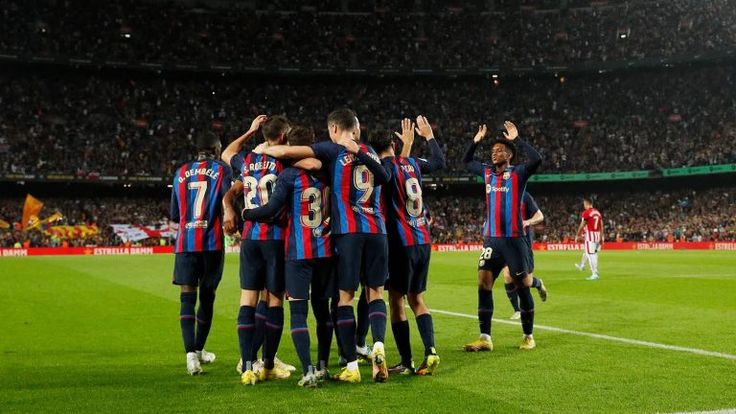
Barca only need to study the performance of Los Leones when they beat Real Madrid 1-0 at the New San Mames to understand what they are capable of.
We could see demonstrations again in front of the King of Spain.Alex Caparros/Getty Images
With a worldwide audience watching on, expect this match to start with incessant booing of the Spanish national anthem as the King of Spain takes his seat.
Close to 100,000 Catalan and Basque supporters in the stadium are no fans of the Spanish royals and will seek to ram home their political aspirations whenever possible.
Date: Saturday, May 30
Time: 8:30 p.m. BST/3:30 p.m. ET
Venue: Camp Nou, Barcelona, Spain
TV Info: Sky Sports 5/ESPN 2 (USA only)
Live Stream: Sky Go (UK only)
Form Lines
| Barcelona | Athletic Club |
D 2-2 vs. Deportivo La Coruna Deportivo La Coruna |
W 4-0 vs. Villarreal |
| W 1-0 vs. Atletico Madrid | W 3-2 vs. Elche |
| L 2-3 vs. Bayern Munich | D 1-1 vs. Deportivo La Coruna |
| W 2-0 vs. Real Sociedad | D 0-0 vs. Atletico Madrid |
| W 3-0 vs. Bayern Munich | D 1-1 vs. Real Sociedad |
| W 8-0 vs. Cordoba | W 1-0 vs. Cordoba |
WhoScored.com
Predicted Formations
Barcelona’s predicted Copa del Rey Final lineup.B/R Formation Builder.
Athletic Bilbao have just got to go for it at Camp Nou. Not by abandoning their principles but if they need to assert their authority throughout.
This is the third time in six years that these teams have met in the final and Los Leones were comprehensively beaten in the other two.
Barcelona need to keep doing what they have done all season and not allow Bilbao to settle.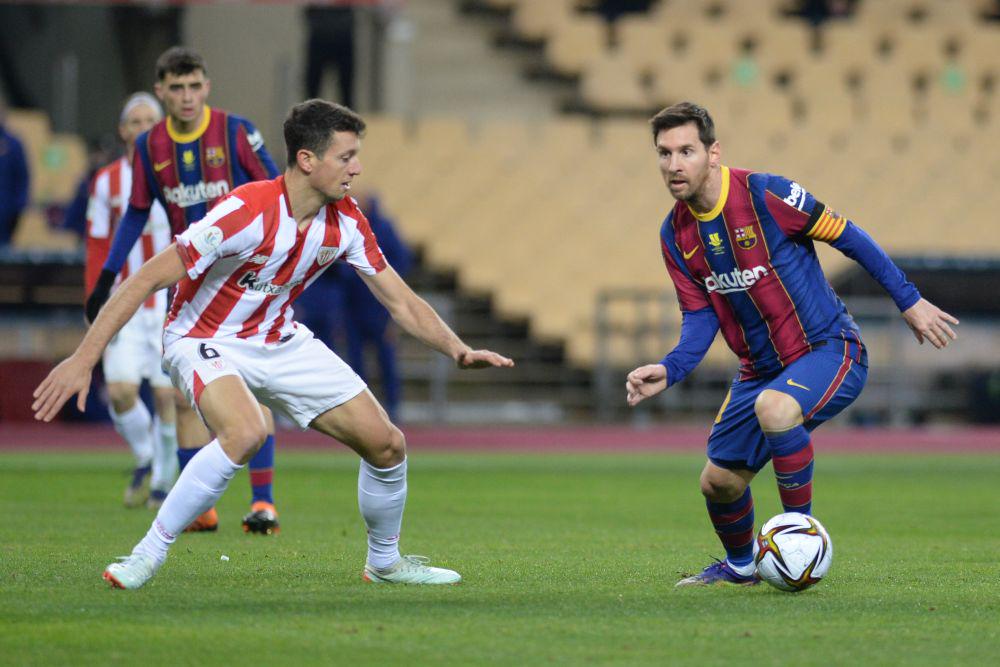
Their natural 4-3-3 formation will again be met by an attacking 4-2-3-1 from Valverde, who does have the staff to trouble Barca.
Overwhelming favourites the Catalans may be, but this is far from a foregone conclusion.
Mikel Rico, Andoni Iraola and Inaki Williams will play a support role to lone front man Aritz Aduriz.
ModernGhana.com @modernghanaweb
Fastest man in Spain: Inaki Williams sets new La Liga record: Athletic Bilbao forward Inaki Williams has set a… http://t.co/r3xG6fGQcZ
If Barca are unable to contain Aduriz, then they must at least mop up all of the second balls that the centre-forward will expertly knock down to his colleagues.
Gerard Pique will be partnered by Javier Mascherano with Jordi Alba and Dani Alves in what is likely to be his final Camp Nou appearance making up the defensive quartet in front of Marc-Andre ter Stegen.
Ander Iturraspe and Benat are tasked with protecting their back line from the crisp pin-point passing of Ivan Rakitic and Andres Iniesta.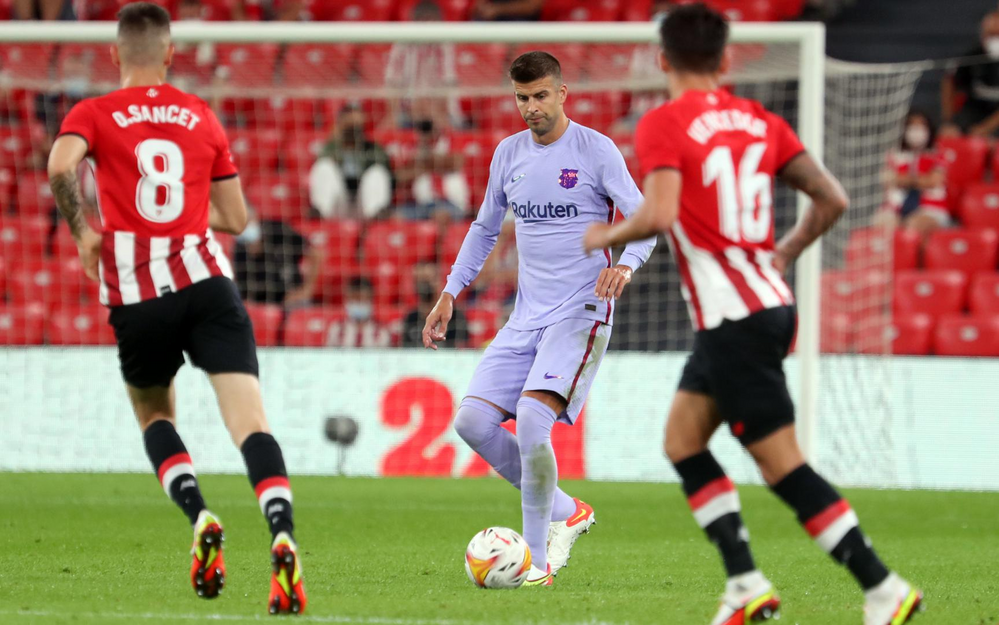
kevin keatings @_keatings
Going to be emotional commentating on one of the all time greats @Xaviherrnandez6 final game CDR Final next Sat @SkySports v Athletic Bilbao
Sergio Busquets reprises his usual holding role and will try and make life as difficult as possible for the inexperienced Williams.
Luis Suarez will be fit to start as Barca’s front three look to score the two goals that will make them the most successful front three in Spanish football history over the course of a season.
As it is, Suarez, Neymar and Lionel Messi have already scored more league goals than 93 of the 97 other teams in the top five leagues in European football. That’s frankly preposterous.
Squawka Football @Squawka
Messi, Suarez and Neymar have scored a total of 81 league goals this season, more than 93 of the 97 other clubs in Europe’s top 5 leagues.
Aymeric Laporte should relish the opportunity of pitting himself against the best, but he will need to be ably supported by Mikel San Jose, Oscar Da Marcos and Mikel Balenziaga.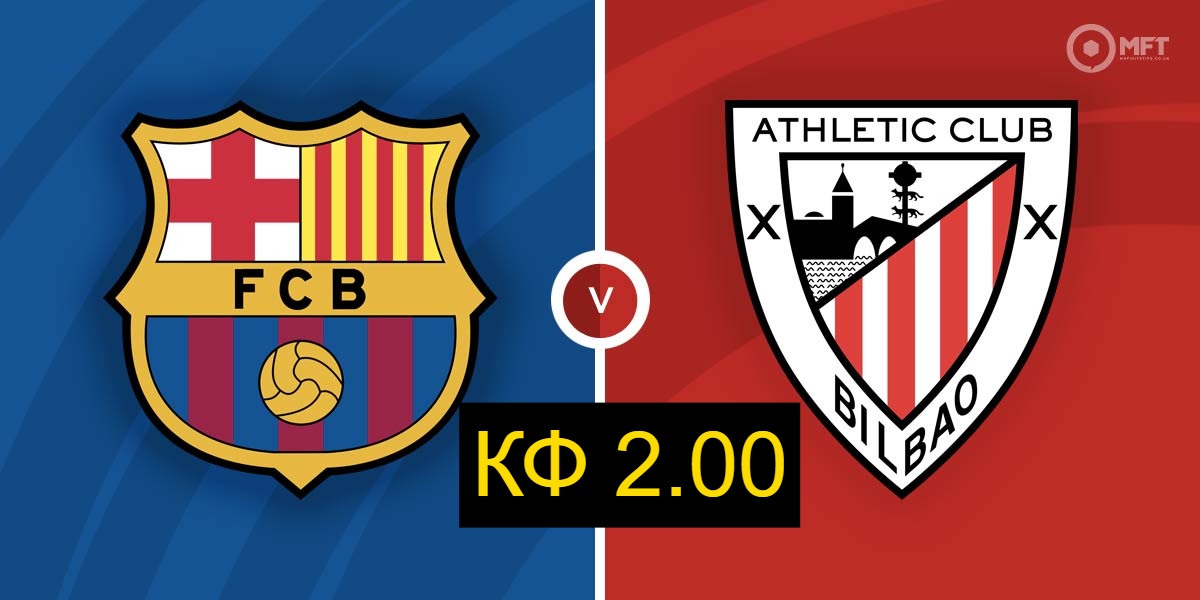
Luis Suarez could be the thorn in the side of Athletic’s defence.Alvaro Barrientos/Associated Press
Concede early and need to chase the game, we could end up seeing Barca’s front three pick off their opponents as they did in the 5-2 thumping earlier in the campaign.
Iago Herrerin has been keeping Gorka Iraizoz out of the side and should keep his place here.
Player to Watch
Absolutely no doubt that the danger man for Athletic Club is centre-forward Aritz Aduriz.
A real old-school type of player, he will not give Barcelona’s back line a moment’s peace. At 34 years of age, he is enjoying something of an Indian summer to his career and is in the form of his life.
His headed goal against Real Madrid earlier in the season was sensational.
A goal, an assist and a workhorse display in a man-of-the-match performance in the final-day annihilation of Villarreal showed he has lost none of his prowess in and around the box.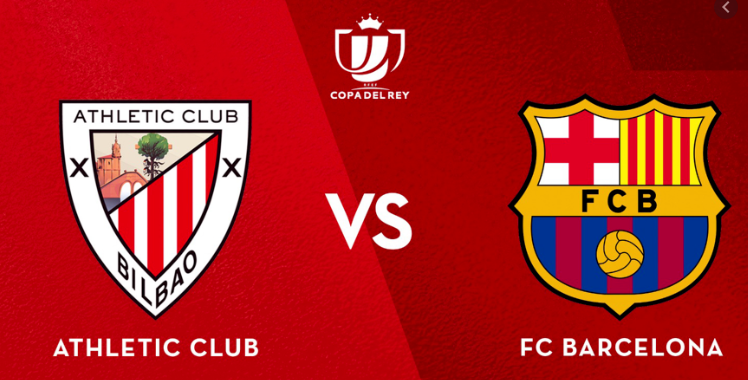
There will likely be a few industrial challenges to deal with, and if he isn’t tightly marked throughout the 90 minutes, he could well be the match winner here.
Key Battle
Inaki Williams is making a name for himself in the Basque country.Alex Caparros/Getty Images
Inaki Williams has made a real name for himself in this, his breakout season for Athletic.
Although his form has tailed off slightly since he burst on to the scene at the turn of the year, 20-year-old Williams remains an exciting and energetic central midfielder.
A goal and an assist in the final two games of the league season will have given the youngster some confidence, and Sergio Busquets will need to be wary of William’s effervescence in and around the penalty area.
Williams will buzz about in the hole just behind Aduriz, seeking space between the lines to bring the wide men into play.
If Busquets can close him down quickly, a lack of experience at this level could see his influence wane over the course of the game.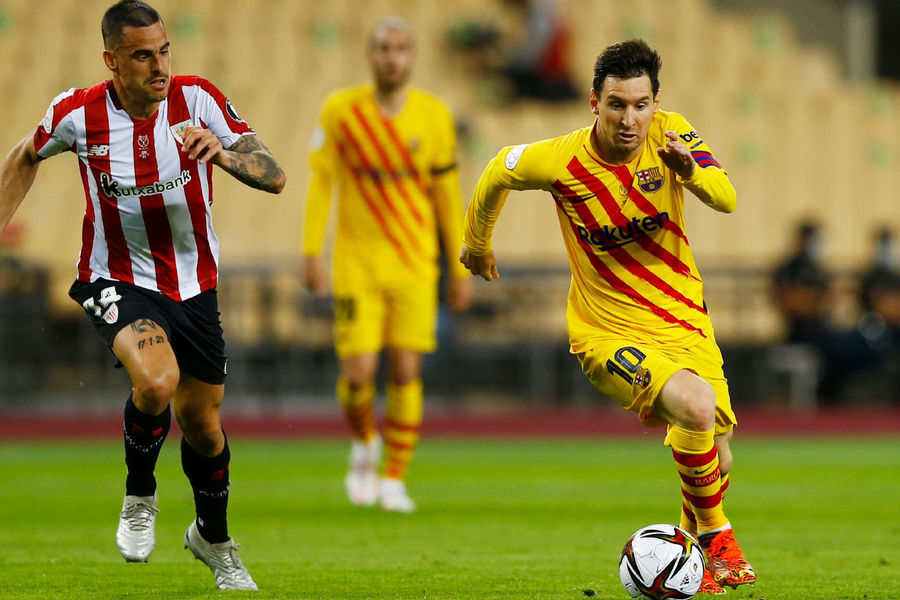
Odds
The following pre-match odds are available, per Oddschecker:
Barcelona Win: 1/4
Athletic Bilbao Win: 14/1
Draw: 6/1
“Everything will be fine.” Preview for the match with Athletic
… Dreams rarely come true, but in this fairy tale
Fairies bring children’s dreams to life:
Young Basques will sail to Bilbao,
Their good gardens will greet them with oranges.
Dance, in a lily-of-the-valley dress, dance, everything will be fine,
Dance, let the stars fall just for you.
Dance hello Spain. Dance, make a wish,
Dance, let the stars fall just for you.
– Lyapis Trubetskoy, “Argentina”
A contagious English example
Basques are Basques, but the story of Barcelona’s closest rival began with young Englishmen sailing to Bilbao.
There is even a special date in the history of Atlético – more precisely, what preceded it – there is even a special date: 1892, when the president of the Nervion Shipyard Athletes club (in this case it is not the district of the same name in the capital of Andalusia, where the Sevilla stadium is located “Ramon Sanchez Pisjuan”, and the river that flows in northern Spain and passes through Bilbao), a Briton by last name, of course, Jones (his name was hidden by the foam of days – either Harry or Henry) turned to the local authorities with a request to allow football matches to be held at the hippodrome in the Lamiako district, which was located in the Basque city of Lehona, 10 kilometers from Bilbao. At first, the locals watched the aliens play with interest, then they joined, then they learned, and on May 4, 1894 years challenged the British to a football duel.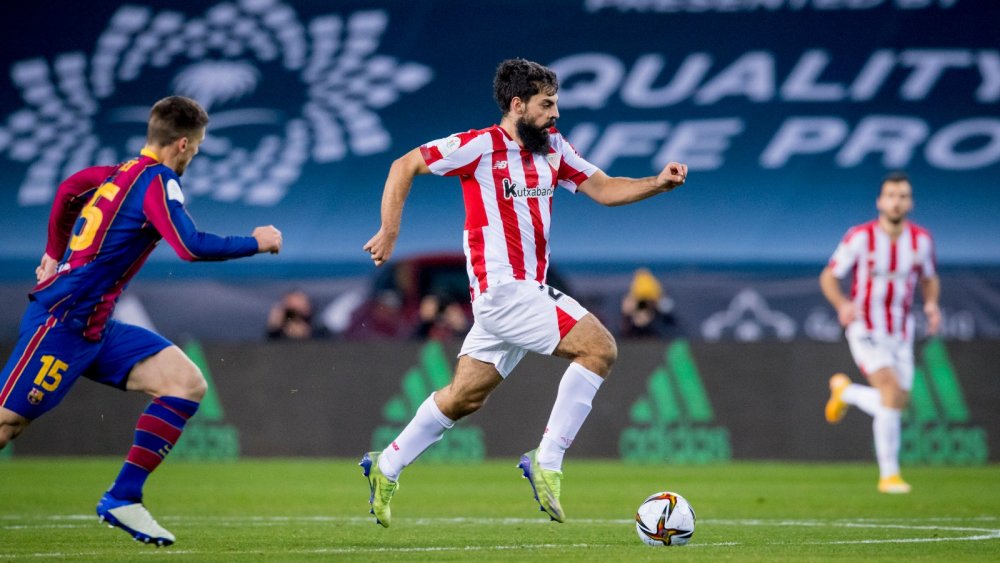
Football in the Basque Country, 1909 join the club, which received the name “Athletic”, under which he and known so far.
HOUR “X”. Match start time
Saturday, September 29, 2018 05:15 PM UTC
WHERE TO WATCH? Live broadcast of the match
“Match! Football 3”, “SilaTV”, 17:10 Moscow time
BUSINESS CARD. General information about the opponent
Name: Athletic Club
Founded: 1898
Autonomous Region: Biscay
City: Bilbao
Nickname: Lions
Stadium: San Mames (5328 9 spectators)
President: Josu Urrutia
Continuous performance in Example: since the founding of La Liga in 1928
Past league performance: 16th (43 points)
Best league performance: 1st (8 league titles)
Achievements: 8x Spanish Champion, 23x Copa del Rey
WHO ARE THEY? Opponent’s application for the season
3
A small lyrical digression, dedicated to the emergence of Atlético Madrid, is necessary to move on to the story of the relationship between the Basques and the Blue – pomegranates.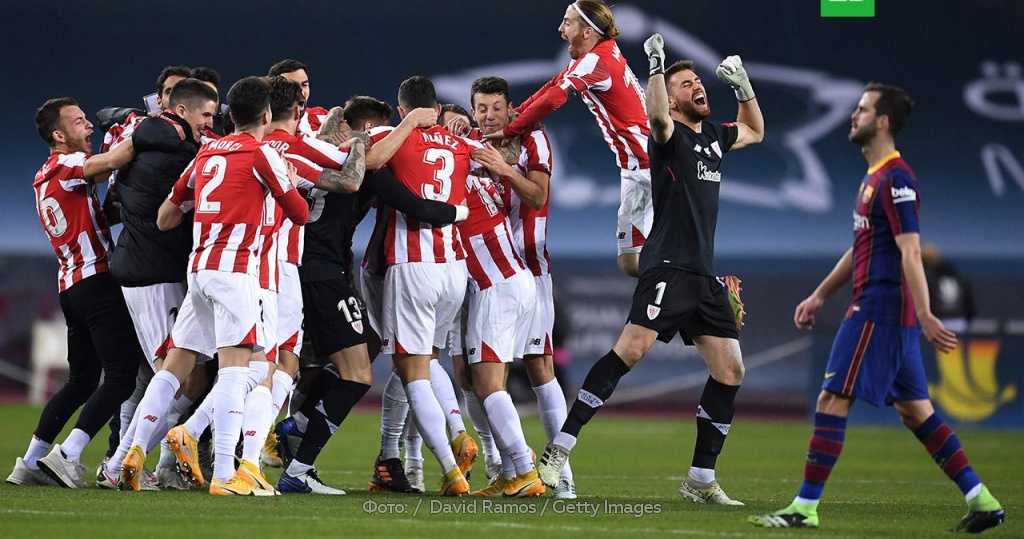
Gentlemen who won the first Copa del Rey
This victory so impressed the Basque student fans of Athletic who lived in Madrid that they decided to create in the Spanish capital, a branch of your favorite club.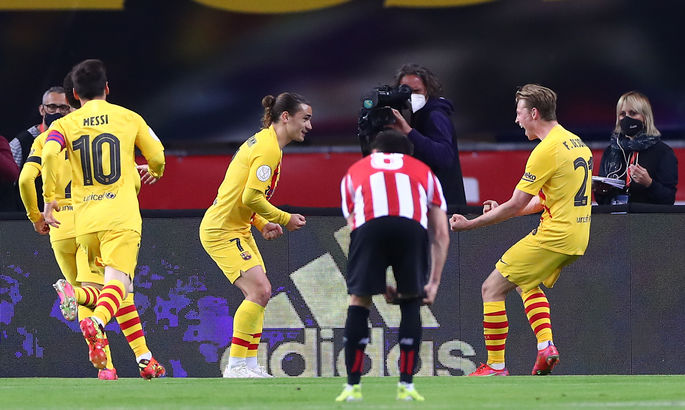
Unrecognized Cup
By the way, a year before the first draw of the Spanish Cup, in 1902, as part of the festivities on the occasion of the ascension to the throne of King Alfonso XIII, a small tournament was organized, which was called Copa de la Coronacion ( Coronation Cup). The team from the Basque Country also won it – Barcelona was beaten in the final (2:1). This team was Biscay, a team of players from two Basque clubs, Athletic Club and FC Bilbao.
Cup finals
The Coronation Cup final was the first of eight cup finals in which Basques and Catalans met to measure their strength. For two, they mowed down more than fifty trophies (30 for the “blue garnet”, 23 for the “red and white”), but in personal meetings in the decisive matches, the score was 6:2 in favor of Barcelona. Let’s take a look at the brightest of them.
May 2, 1920: Barcelona – Athletic 2-0
Barcelona champion squad (from left to right): Zamora, Plaza, V. Martinez, Alcantara, Samitier, Sesumaga, Coma, Viñals, Torralba, Galicia and Sancho 90 003
On the way to Barça left behind Sevilla and Real Union in the final, and the Basques dealt with Madrid and Celta.
At the home arena of Sporting Gijón, the El Molinon stadium, a very resonant match took place in the pouring rain, marked by a strange refereeing decision that definitely influenced the final result. The chief arbiter of the meeting was Bertrand de Lis, at that time the President of the National College of Arbitrators, one of the best masters of his craft. He appointed a fair penalty against Barca for a foul by the Catalan defender of Galicia. Laka did not leave Zamora a chance, but the referee canceled the goal, believing that Herman Echevarria (according to another version – Rafael Aransadi, the famous Pichichi) was in the penalty area before Laka hit.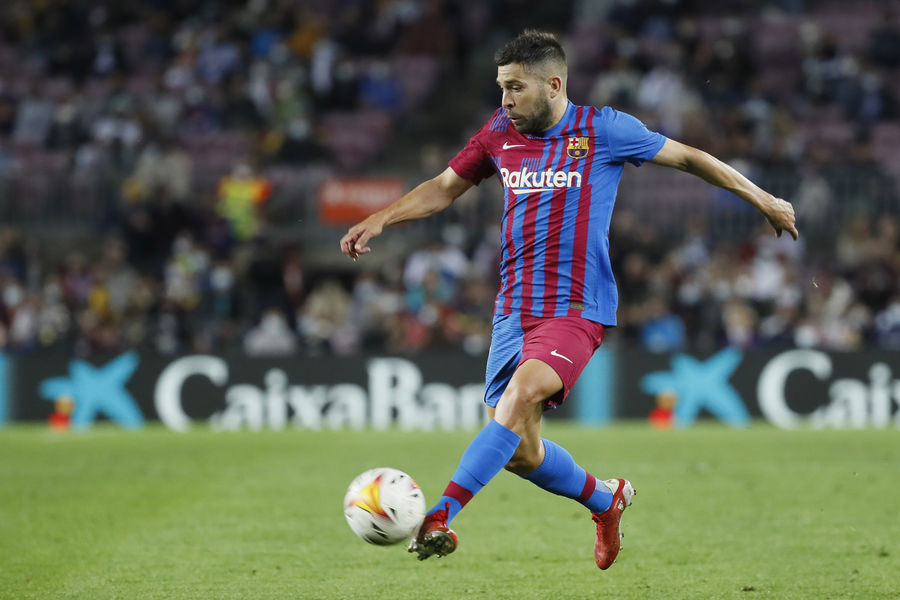
Everything would be fine, but instead of appointing another penalty kick, de Lis unexpectedly whistled a free kick in favor of the Catalans. The discouraged Basques could not get a clear explanation, their game went wrong, and in the second half goals from Martinez and Alcantara brought the final victory to Barcelona. Bertrand de Lis soon after admitted his terrible mistake and announced his retirement from refereeing.
May 5, 1984: Athletic – Barcelona 1:0
Barcelona – Athletic Bilbao history of confrontation, why they hate each other, red card Messi, Amorebieta, fight in the final of the Copa del Rey 1984 Maradona, Goicoechea, Iniesta – January 18, 2021
Mark Bessonov
Share
Comments
10 years ago, Leo was almost decapitated.
In the Spanish Super Cup final, Lionel Messi received the first red card of his Barcelona career.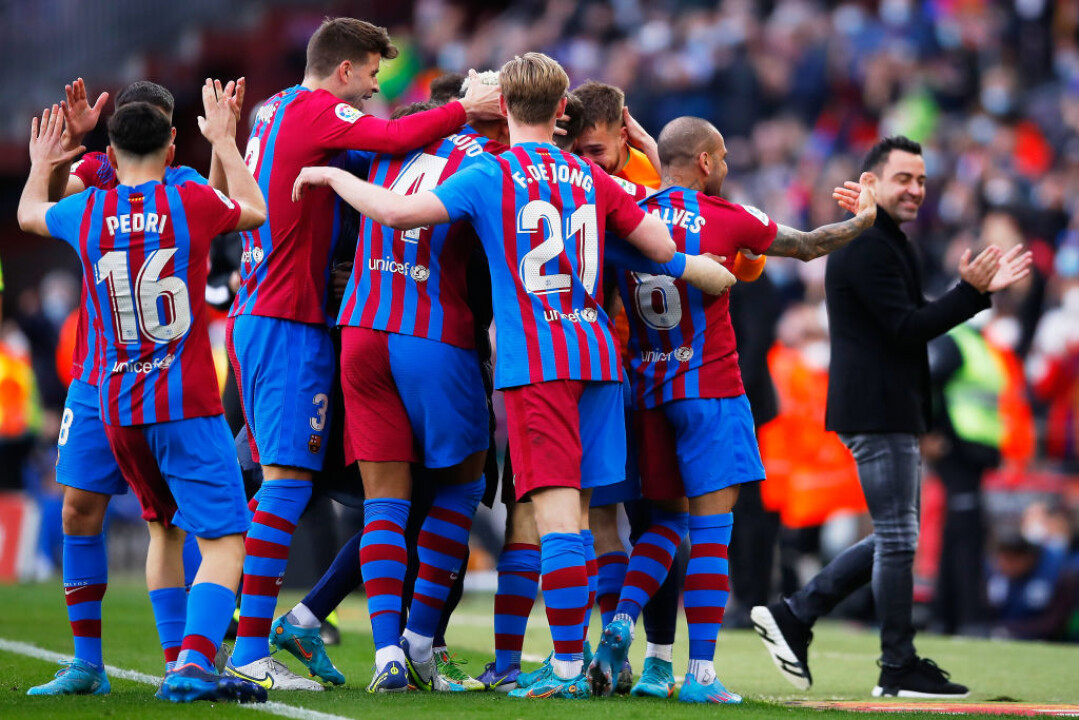
Messi received a straight red for a go-ahead in the 121st minute of the match when the score was 3:2 in favor of Athletic. Throughout the game, the players from Bilbao played roughly and simulated, and Ronald Koeman focused on this after the match.
“I understand Leo. I can’t even imagine how many times he was fouled,” said the Dutch coach. Messi is now facing a 4-match suspension as his actions have been qualified as deliberate aggression.
“I think Messi’s aggression was obvious. It’s normal to be frustrated at not being able to do anything,” said Asier Villabre, the injured Atletico player.
This is not the first dirty story in the confrontation between Barcelona and Athletic. It is believed that no teams hate each other in Spain as much as Barça and Real Madrid, but it so happened historically that matches between the Catalans and the Basques are often much more heated.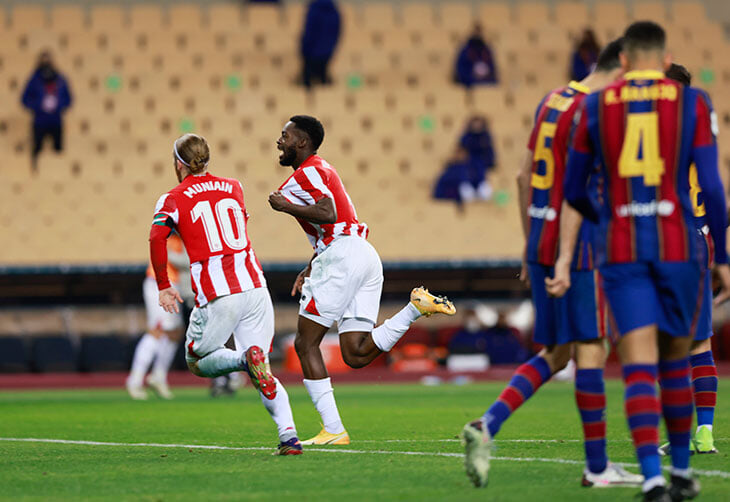
History of hate
Until the 80s, Barcelona and Athletic treated each other with marked reverence. Both regions agreed on the rejection of the Franco regime, which suppressed the national movements of Basque and Catalonia. There is even a case when Franco on April 1937 invited the German Luftwaffe aviation to destroy the Basque cultural center of Guernica.
Until the 80s, Real Madrid reigned in Spain, which was sympathetic to the Franco government, whose hegemony was occasionally interrupted by another metropolitan Atlético team. However, after the death of the dictator, regional clubs also began to raise their heads. So, in the period from 1980 to 1985, Real Madrid never became a champion, but Barcelona won gold once and two Basque teams Athletic and Real Sociedad took gold twice each. A new confrontation began to emerge.
The political situation also heated up the situation. The 70s and 80s were the years of peak activity of the Basque terrorist organization ETA, from the actions of which 43 people died in 1983 alone.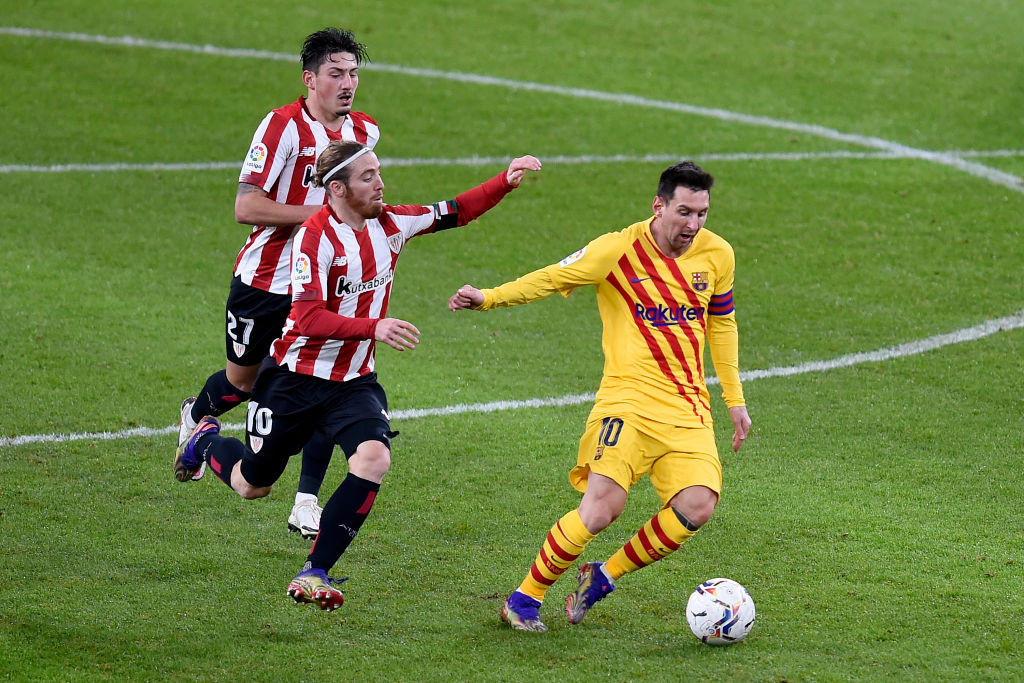
Barcelona coach Luis Cesar Menotti of Argentina and Athletic coach Javier Clemente added fuel to the fire. Politically influential in liberal Argentine circles, Menotti called Clemente’s style “brutal, authoritarian and wretched.” The radical Basque nationalist Clemente responded by calling his opponent “an aging woman-like hippie.” Barça, with Shuster and Maradona, then showed beautiful combinational football, Athletic, under the captaincy of the rock-like Andoni Goikoechea, made war out of every match. The fans of Barca called the Basques meat-cutters, those of them – women who do not know how to play power men’s football.
The first explosion happened in 1981, in Clemente’s debut match at the helm of Athletic.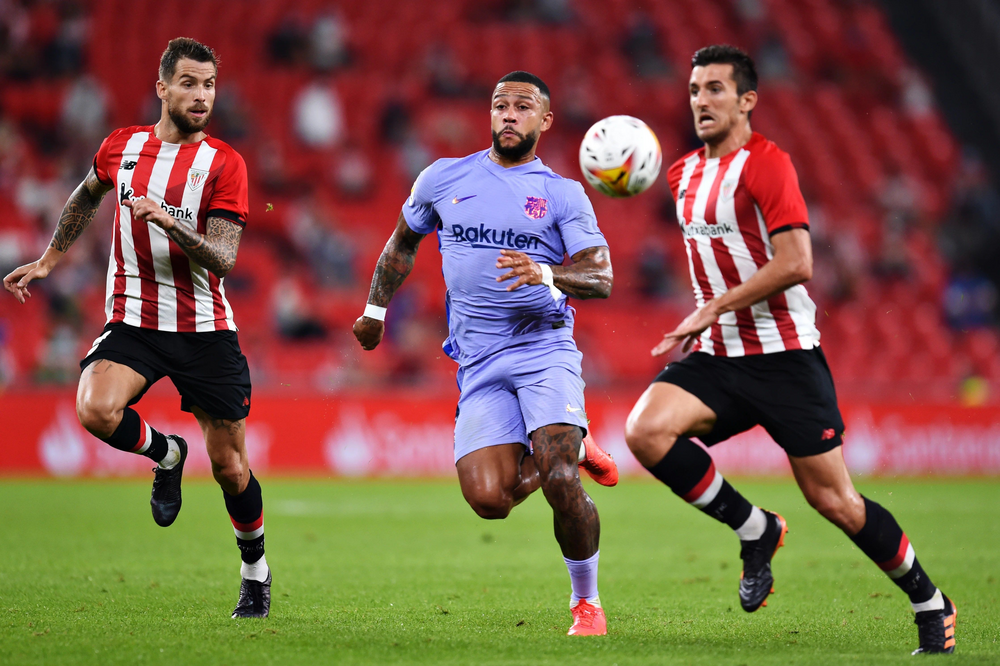
Explosion of cruelty
The first cruelty happened in 1983. Barcelona in the fourth round of La Liga led in the match with Athletic with a score of 2:0. In his autobiography, Diego Maradona said that a few minutes before the end, Andoni Goicoechea told the Argentine that he would kill Schuster on the field. Maradona told him to calm down, since there was absolutely nothing left until the end of the match – what’s the point? This had the opposite effect – Goicoechea soon broke Diego’s ankle in a nightmare tackle in the center of the field and left him out of the game for several months. According to Maradona, during rehabilitation after that injury, he first tried cocaine.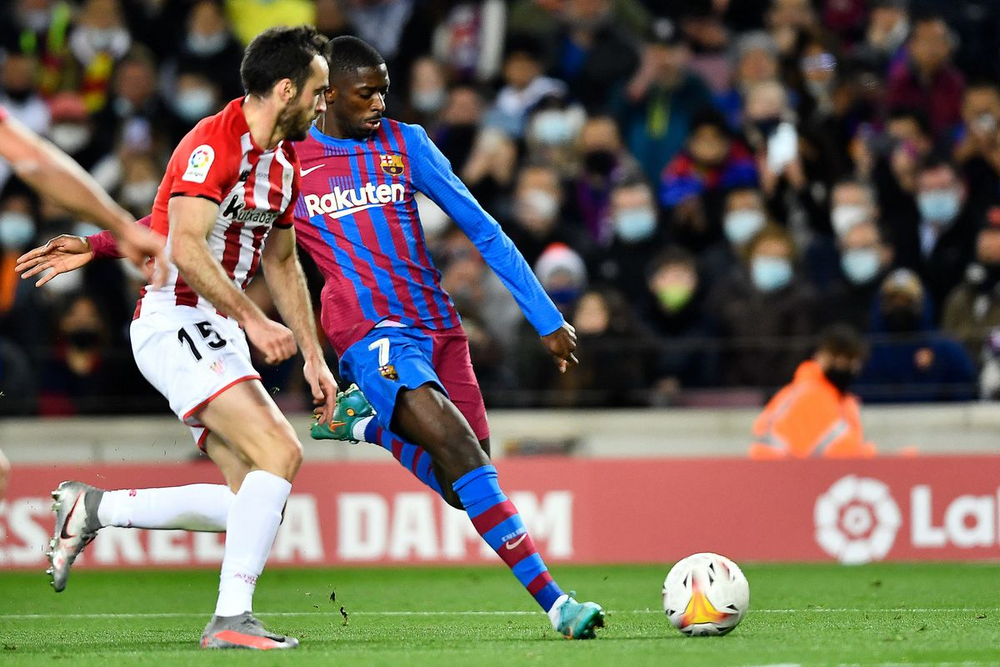
But these were only flowers. Barça were determined to take revenge in the Copa del Rey final at the Santiago Bernabéu. The King of Spain, who was present at the game, faced an unforgettable sight – the fans were ready to tear each other, Schuster threw garbage flying from there back onto the stands, and Athletic’s defenders thrashed Maradona’s legs throughout the match, saying that it would be better if Real Madrid became the champion than the Basques . And before the game, Athletic fans booed a minute of silence in memory of the Barça fans who died in a car accident on their way to the game in Madrid.
Athletic scored an early goal, dried up the game in the usual style and eventually took the Cup. But hell began already after the final whistle – Basque fans yelled racist chants at Maradona’s father, and Athletic football player Nunez showed Diego the V gesture – victory.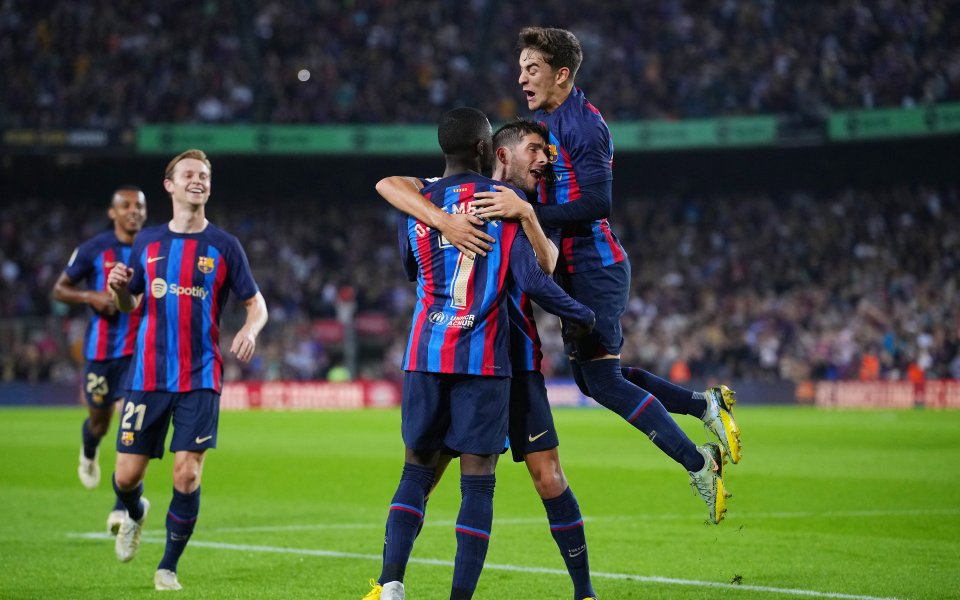
Recent incidents
There is no more such cruelty as in the 80s between Athletic and Barça. However, there are still cases of real cruelty in matches between these teams from time to time. So 10 years ago, Athletic defender Fernando Amorebieta almost blew Messi’s head off, that photo is famous to this day.
Getty Images
Athletic Stadium San Mames was the only one in Spain where the national hero Andres Iniesta was booed. In Bilbao, he was long reminded of the removal of the same Amorebieta after a foul on the Catalan midfielder – the Basques were sure that he was feigning. Even three years later, the angelic Iniesta managed to exchange swear words with Athletic fans who booed him after the replacement.


